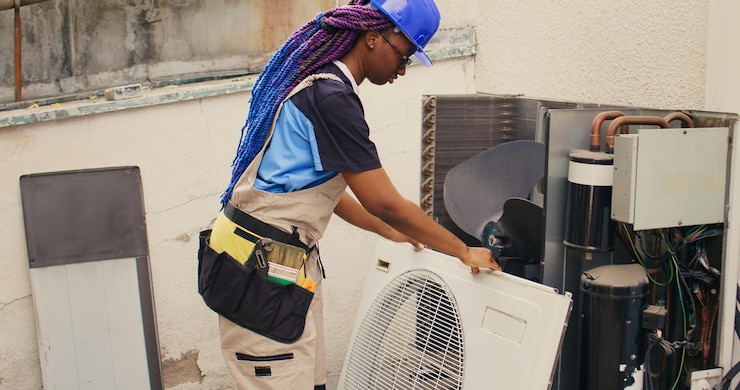The world of heating, ventilation, and air conditioning (HVAC) is undergoing a transformation, thanks to the integration of AI models for HVAC energy auditing. As industries strive for energy efficiency and sustainability, the adoption of AI is proving to be a game-changer. Understanding the impact and potential of these technologies is essential for professionals in the field.
AI models for HVAC energy auditing are designed to optimize energy use, reduce costs, and enhance system performance. These models analyze vast amounts of data to provide insights that were previously inaccessible. By leveraging AI, industries can make informed decisions, ensuring their systems are both efficient and environmentally friendly.

The Importance of Energy Auditing in HVAC
Energy auditing in HVAC systems is crucial for identifying inefficiencies and potential improvements. Traditional methods often involve manual checks and estimations, which can lead to inaccuracies. With the advent of AI models, these audits become more precise and comprehensive, allowing for more effective energy management.
Traditional vs. AI-Driven Auditing
Traditional energy audits rely heavily on manual data collection and analysis. This process can be time-consuming and prone to human error. In contrast, AI-driven auditing utilizes advanced algorithms to process data quickly and accurately. This shift not only saves time but also enhances the reliability of the audit results.
How AI Models Work in HVAC Systems
AI models in HVAC systems function by collecting data from various sensors and components. This data is then analyzed to detect patterns and anomalies that indicate inefficiencies or malfunctions. By continuously monitoring system performance, AI can predict potential issues before they become significant problems.
Data Collection and Analysis
The effectiveness of AI models lies in their ability to handle large volumes of data. Sensors placed throughout the HVAC system collect information on temperature, airflow, energy consumption, and more. This data is fed into AI algorithms, which analyze it to provide actionable insights.
Predictive Maintenance
One of the most significant benefits of AI in HVAC is its capacity for predictive maintenance. By identifying potential failures before they occur, AI models help prevent costly downtime and extend the lifespan of equipment. This proactive approach is a significant leap forward from traditional reactive maintenance strategies.
Benefits of AI Models for HVAC Energy Auditing
The integration of AI models into HVAC energy auditing offers numerous advantages:
- Improved Accuracy: AI reduces human error, ensuring more precise audit results.
- Cost Efficiency: By optimizing energy use, AI helps reduce operational costs.
- Environmental Impact: Enhanced energy efficiency contributes to reduced carbon footprints.
Challenges and Considerations
While the benefits are clear, implementing AI models in HVAC systems is not without challenges. One major consideration is the initial cost of installation and integration. Additionally, industries must ensure that their AI systems are regularly updated and maintained to function optimally.
Data Privacy and Security
With the increased use of AI, concerns about data privacy and security arise. It is crucial to implement robust security measures to protect sensitive information collected by HVAC systems.
Skillset Requirements
The adoption of AI technology requires a workforce skilled in both AI and HVAC systems. Training programs and educational initiatives are essential to equip professionals with the necessary skills.
Case Studies: Success Stories
Several industries have successfully integrated AI models into their HVAC systems, achieving remarkable results. For instance, a manufacturing plant reported a 20% reduction in energy costs after implementing AI-driven audits. This success story highlights the potential of AI to transform energy management practices.
Future of AI in HVAC
The future of AI in HVAC is promising. As technology continues to evolve, we can expect even more sophisticated AI models that offer greater efficiency and sustainability. The continuous development of AI technology will undoubtedly lead to further innovations in energy auditing.
Conclusion
The integration of AI models for HVAC energy auditing represents a significant advancement in the quest for energy efficiency and sustainability. By embracing this technology, industries can achieve better energy management, cost savings, and environmental impact.

FAQs
What is the role of AI in HVAC energy auditing?
AI plays a crucial role by analyzing data to optimize energy use, detect inefficiencies, and predict maintenance needs.
How does AI improve energy efficiency in HVAC systems?
By providing accurate data analysis and predictive maintenance, AI enhances system performance and reduces energy waste.
What are the challenges of implementing AI in HVAC?
Challenges include initial setup costs, data privacy concerns, and the need for a skilled workforce to manage AI systems.
For more insights on how AI is transforming the HVAC industry, visit Evans Plumbing.
Explore how AI is used in HVAC diagnostics at Strobox.
This article contains affiliate links. We may earn a commission at no extra cost to you.
